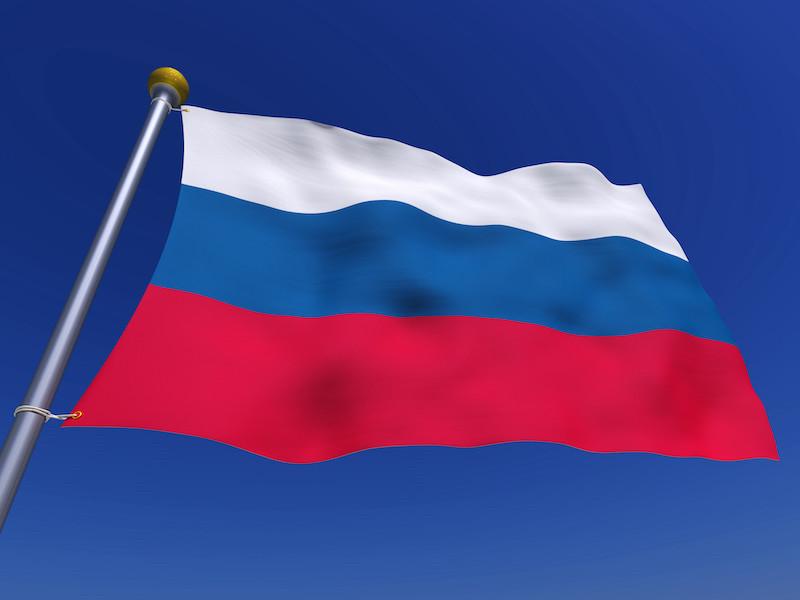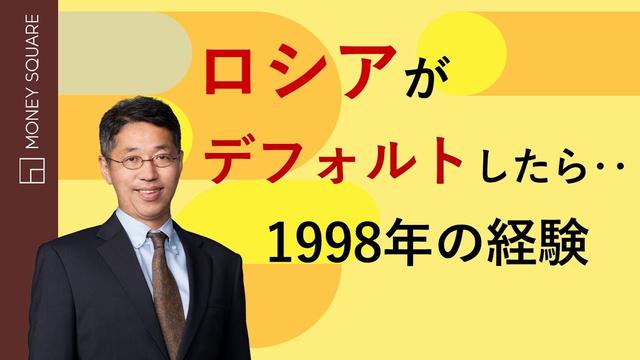
What happens if Russia default? 1998 experience
Russian rating is drastically reduced
On March 2, Moody's and Fitch, a major rating company, made Russian rating by six steps to make junk class (speculative).On the following day, the Russian rating, which was already a junkweight, was reduced by eight steps, and CCC-.According to Bloomberg, CCC- is the lowest level in 130 countries where S & P is granted, and is strongly impressive that the default is near.
Military power, Russia in economic and small countries
Needless to say, Russia is the second military power of the United States (although the difference between the two except nuclear weapons seems to be large).On the other hand, Russia is inferior to many developed countries as well as the United States.
Russia's economic scale is 11th in the world
For example, according to the IMF, Russia's economic scale (GDP) in 2020 is 11th after the G7 (US, Japan, Germany, the United Kingdom, France, Italy, Canada), China, India and Korea.Russian GDP does not reach the first place in the United States.Similarly, it is 66th in GDP per capita (24th in Japan).Russia is also 22nd in foreign asset balance and 12th in the net asset balance (asset -debt).
Russian industrial exports are small
According to UNCTAD, Russia is 16th in the world in total exports, but oil exports are second after Saudi Arabia, while electric equipment, computers, and industrial machinery are below 30.

There are still many data, but in short, Russia is economically small, at least economic power.
Russia is also a full -fledged recession
With the European and American economic sanctions on the annexation of the Crimea in 2014, the Russian economy fell into resession (economic recession), and the financial system was in crisis.Due to such bitter experience, Russia seems to be strengthening economics and its resistance to economic sanctions is increasing.Until around 2018, Russia's foreign debt was much higher than foreign currency preparation, but it has been helped by rising oil prices and is now exceeding foreign currency preparation.In addition, foreign currency preparation reduces the ratio of US dollars and increases the ratio of the euro and the yuan.
Powerful financial sanctions
China and others may support Russia, and soaring energy and resource prices may be a plus for the Russian economy.Nevertheless, the power of financial sanctions, such as elimination from Swift and suspension of transactions with central banks, seems to be particularly great.No matter how much nutrition you have, if the blood flow that sends it to your body is poor, your body will be weakened.If economic sanctions are prolonged, it is likely that Russia will fall into a full -fledged resession (economic retreat).
Can Russian people withstand poverty life?
経済制裁が効果を発揮するまでには時間がかかるかもしれません。プーチン大統領は短期間でのウクライナ制圧を目論んでいるでしょうし、自身は強力な経済制裁を予期していたかもしれません。しかし、必ずしもウクライナ侵攻を支持しているわけではないロシア国民は、長い窮乏生活に耐えられるのか。国内の政治不安がプーチン政権を揺るがすことになるかもしれません。<<
98 years of experience default by Russia
Russia experienced default in August 1998.On August 17, 1998, the Russian government declared a default of the Louvre's domestic debt and paid for 90 days external debt.Both are defined as default (default) ( *).In addition, the permissive range of the Louvre's dollar market was expanded and de facto rubled.
( *) The Russian government had the ability to repay its own currency -constructed debt (theoretically, if the Louvre banknotes were printed, there would be no need for repayment), but lacked willingness to repay.Generally, the performance of debt is possible only with the debtor's repayment ability and will.
Russian financial deterioration background
It may be said that you were directly under the Asian currency crisis in 1997.With the Asian currency crisis, investors tend to avoid risks, and emerging countries have shunned.In addition, brakes on the global economy have been braked, and crude oil and resource prices have fallen, and Russia's trade balance/current account, which uses crude oil as the main export, has deteriorated.At that time, Russia adopted a crawling peg that loosened the rubles to the US dollar.In April 1995, the United States started raising interest rates, and the Rubin was launching a "strong dollar" policy under the Clinton administration, which also influenced the rubles.
Major hedge fund has broken
Russian defaults had a major impact on the market.With the plunge of the Louvre, Western financial institutions and investors, which owned Russia, were lost.It also included hedge funds.In particular, the US LTCM (Long Term Capital Management) was severely wounded.
LTCM was embracing a Nobel scholar and giving a tremendous performance.However, the situation has changed completely due to Russian defaults.The strategy of LTCM is arbitrage (sheath removal).A position that had been separated from the theoretical value using options, etc. would return to the theoretical value, and made a profit from a slight change by applying a high leverage.
At that time, LTCM decided that Russian government bonds were sold too much, and had a Russian government bond buying position and US Treasury bonds.However, the default of Russia caused a huge loss from the buying position of Russian government bonds, and the US Treasury bonds rose (interest rates declined) from risk -offs, resulting in losses from US Treasuries.It became a tear again.
To a sudden appreciation of the yen
And Russian defaults and LTCM broken brought a sudden appreciation.Not only is it just escaping to safe assets, but also a huge yen carry trade (raising a low interest rate and operating with foreign currency assets) has been rewinded.The US dollar/yen fell from 146.66 yen on August 11, just before Russia default to 111.85 yen on October 8.In particular, it fell nearly 25 yen in just four days from October 5 to 8.
Is it different from 1998?
There will be no large -scale circular carry trade at your feet at that time.Nevertheless, if Russia defaults, there is a possibility that a strong risk -off may occur in the market temporarily, and you will need to be careful and monitor the situation.
Akihiro Nishida (Money Square)
Money Square Chief Economist.He joined the Nikko Research Center, the US Bookings Research Institute, Mitsubishi UFJ Morgan Stanley Securities, etc. in 2012.He distributes reports on the company's website, which is focusing on "Investor Education (Academia)" (partially published only for those who have an account), as well as the video distribution site for investors.Explain the market in M2TV.
この著者の記事一覧はこちら